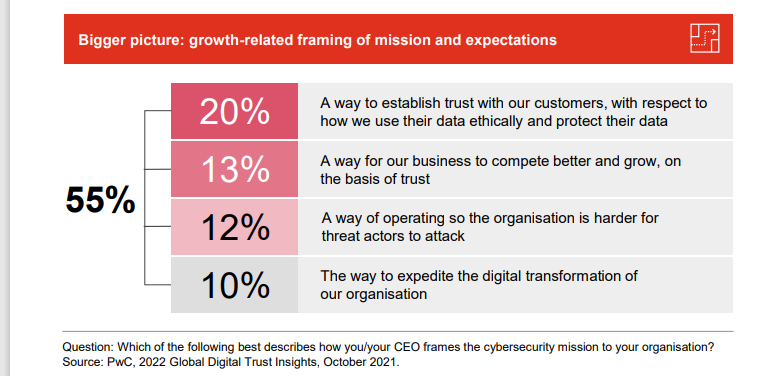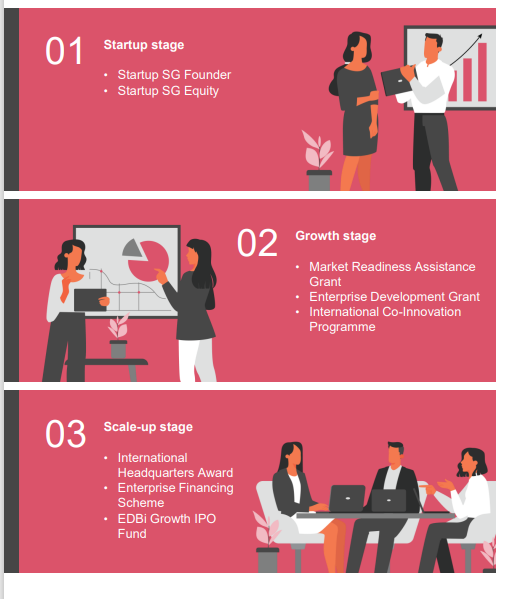Fintech innovation has driven economic growth, revolutionising financial services and bringing new solutions to meet evolving needs.
Amid global uncertainties and challenges surrounding trust, security, and regulatory clarity, Singapore has emerged as a leading fintech hub in Southeast Asia.
A report released by professional services firm PwC Singapore, the Singapore Fintech Association (SFA), and the Singapore Economic Development Board (EDB) highlight Singapore’s commitment to fostering fintech innovation, particularly in areas such as Web 3.0, artificial intelligence (AI), and green fintech.
The unprecedented growth of fintech
The global fintech industry has witnessed exponential growth over the past few years, fueled by the rapid digitalisation accelerated by the COVID-19 pandemic.
According to PwC’s recent fintech report, 60 percent of respondents in the payments sector and 35 percent in the lending sector reported annual revenue of more than S$10 million.
Despite geopolitical tensions and economic challenges, the fintech sector continues to expand, with the total transaction value in the digital payments segment projected to reach an impressive US$9.47 trillion in 2023 and the number of users expected to reach 5.48 billion by 2024.
Additionally, neo banking, a digital-only banking platform, is projected to experience revenue growth of 28.9 percent in 2023, with an average transaction value per user of US$18,000.
Another significant development is the rise of central bank digital currencies (CBDCs), with 114 countries representing over 95 percent of global GDP, either launching or considering their adoption.
The sector must maintain its engines of innovation despite slowing economic conditions to meet society’s insatiable need for fintech solutions. In the coming years, payments, neo-banking, and CBDCs are expected to play crucial roles as drivers of fintech growth.
Southeast Asia: fertile ground for fintech
Southeast Asia presents numerous opportunities for fintech companies due to its rapid urbanisation, growing middle class, and expanding population.
The region’s emerging economies, including those in Southeast Asia, have been underserved by traditional finance, creating gaps that fintech innovations can fill.
Fintech investments in ASEAN reached an impressive US$4.3 billion during the first nine months of 2022, surpassing the combined sum invested from 2018 to 2020.
Projected to become the fourth-largest economy by 2030, following the European Union, the United States, and China, Southeast Asia boasts a young and vibrant demographic that embraces technology. The rapid urbanisation of rural areas and the rise in household incomes have also driven changes in consumption behaviour.
Despite the fertile ground for fintech companies to flourish, the region still needs to overcome particular challenges. Emerging economies often grapple with financial and technological infrastructure limitations, talent shortages, complex tax and regulatory regimes, and political and economic instability. Additionally, limited access to funding can be a hindrance to growth.
Singapore as a gateway to Southeast Asia
Despite a slight dip in fintech funding in 2022 compared to the previous year, Singapore remains a dominant player in the Southeast Asian fintech landscape.
Singapore, with its extensive network of free trade agreements and robust business environment, serves as an excellent bridge for fintech companies looking to tap into the potential of Southeast Asia.
In 2022, a report by PwC Singapore, SFA, and UOB found that Singapore and Indonesia accounted for more than three-quarters of ASEAN’s total funding in fintech that year.
Singapore had the highest number of fintech firms within the ASEAN-6 (Indonesia, Malaysia, the Philippines, Singapore, Thailand, and Vietnam) – 1,580 as of November 2022.
With its thriving ecosystem, Singapore boasted 1,580 fintech firms as of November 2022, making it the top destination for fintech companies in the ASEAN-6 region.
In September 2022, Singapore’s Deputy Prime Minister, Minister for Finance and the Monetary Authority of Singapore (MAS) Deputy Chairman Lawrence Wong, launched the Financial Services Industry Transformation Map (ITM) 2025.
Despite the challenges faced during the pandemic, Singapore’s sustained commitment to fostering innovation and providing support to fintech companies ensures that the growth in the sector remains steady.
The role of AI in transforming fintech
The adoption of AI has been transformative across industries, including fintech.
In the RegTech sector, AI adoption has been significant, with sophisticated AI systems assisting in areas such as identity verification, fraud detection, and anti-money laundering (AML).
AI’s role in financial services is expected to grow exponentially, shaping the future of the fintech landscape. Fintech companies looking to leverage in Southeast Asia can partner with AI Singapore (AISG) to scale their efforts and conduct use-inspired research.
AISG provides an advantageous ecosystem for AI startups and research institutions, empowering Singapore’s AI efforts.
Fintech’s contribution to sustainability
The growing emphasis on sustainability and green finance provides significant momentum for fintech companies in Singapore and the region.
With Asia being home to more than 4.5 billion people and housing five of the world’s top ten greenhouse gas emitters — China, India, Indonesia, Japan, and South Korea — accounting for approximately 45 percent of global emissions, the race to promote greener economies in the region is accelerating as 2030 approaches.
As a result, businesses face increasing pressure from stakeholders to adopt greener practices, creating numerous opportunities for sustainability-technology companies to implement their solutions.
In response to this growing demand, many fintech platforms offer individuals and businesses easy and convenient access to green financing.
These platforms also allow investors to participate in sustainable and responsible investments, such as renewable energy projects, sustainable agriculture, and eco-friendly infrastructure.
Recognising the importance of green finance, MAS took a proactive step in 2020 by launching Project Greenprint.
This initiative aims to foster a green finance ecosystem by mobilising capital, monitoring commitments, and measuring impact. Furthermore, MAS is actively issuing S$35 billion worth of green bonds by 2030 to support Singapore’s transition to a low-carbon economy.
Singapore’s green finance ecosystem is well-supported by various financial institutions, including banks, asset managers, insurers, and private equity funds, all committed to addressing climate change and promoting sustainability.
The growing importance of trust in fintech
The sustainability of fintech companies relies heavily on trust and security. As cybersecurity concerns continue to rise, businesses are investing more in risk management and security measures.
To bolster trust in the digital realm, Singapore has taken proactive measures. Establishing the Digital Trust Centre (DTC) signifies the country’s dedication to leading research and development in trust technologies, including privacy-enhancing technologies (PETs) and trustworthy AI.
The introduction of AI Verify further highlights Singapore’s commitment to trust technologies, the world’s first AI governance testing framework and toolkit.
This initiative enables companies to showcase responsible AI deployment practices, demonstrating their dedication to building and maintaining trust in the fintech sector.
Turning obstacles into opportunities
While challenges exist in the fintech landscape, they present opportunities for innovation. Fragmented regulatory standards in the APAC region open the door for RegTech solutions.
Singapore’s Project Ubin aims to streamline cross-border payments and settlements using blockchain technology, potentially reducing the need for intermediaries and complying with international financial regulations.
Forward-looking regulation in Singapore fosters a thriving fintech environment, enabling companies to scale their operations and access funding.
Striking the right balance
Singapore’s fintech industry benefits from an agile and responsive regulatory approach that fosters innovation and ensures a secure environment. This is achieved through various initiatives and support schemes.
Early-stage companies receive critical support from the Financial Sector Technology and Innovation (FSTI) Scheme, Market Readiness Assistance Grant (MRA), and Enterprise Development Grant (EDG). These programmes enable these companies to scale their operations and explore international markets confidently.
The Fintech Cooperation Agreement facilitates collaboration with global partners. This agreement encourages knowledge sharing and resource pooling, leading to mutual development and growth.
Playing a central role in overseeing the fintech landscape, the Monetary Authority of Singapore is instrumental in promoting a conducive environment for innovation.
The balanced and forward-looking approach to regulation ensures fintech companies receive the necessary guidance and support to develop their solutions while safeguarding consumer interests and maintaining financial stability.
Singapore’s commitment to fostering innovation, sustainability, and trust in the fintech ecosystem is evident in its leading position as a hub in Southeast Asia and the world.
By providing a conducive environment, strategic support, and forward-looking regulations, Singapore empowers fintech companies to thrive, turning challenges into opportunities and contributing significantly to the region’s economic growth and financial inclusivity.










